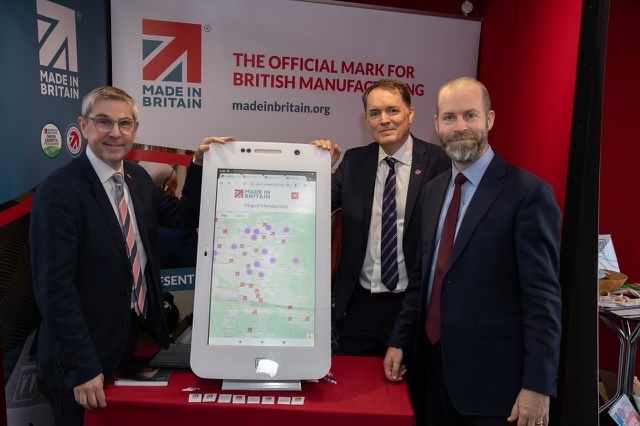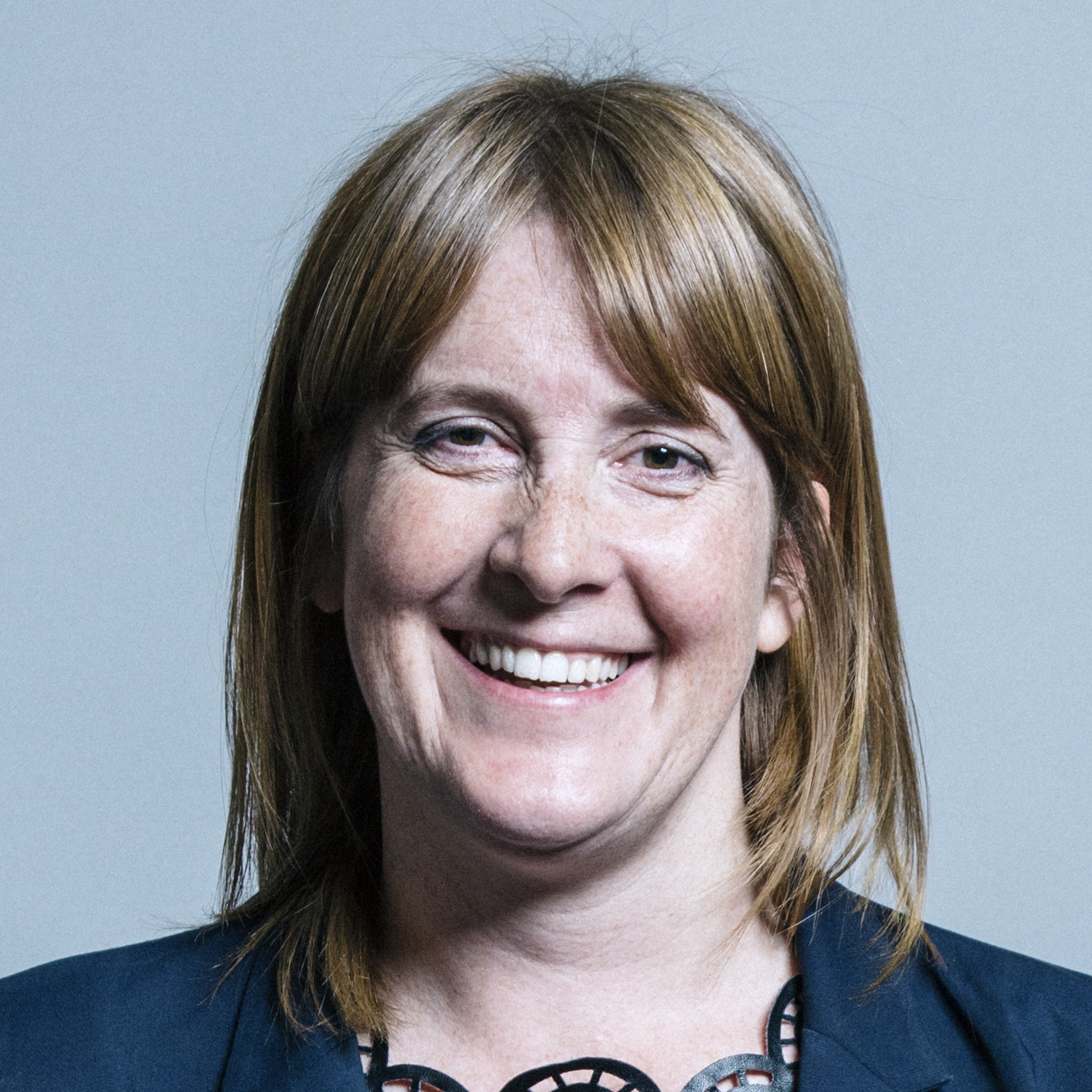Following the General Election on 4th July, the new government has appointed key roles that will significantly impact various sectors of the UK economy, including manufacturing, over the coming years. These appointments are crucial as they will shape policies and strategies that directly influence the growth, competitiveness, and sustainability of the UK's manufacturing sector.
Made in Britain actively works with the UK government and all policymakers from across the political and academic spectrum, to promote UK manufacturers, British procurement policies and supply chain localisation. Our leadership team has existing relationships with several of the key figures in the new government, including the freshly-appointed Secretary of State for Business and Trade Jonathan Reynolds.

Pictured above (L to R) - Made in Britain Chairman, Professor Chris Harrop OBE, Made in Britain CEO, John Pearce, with British Secretary of State for Business and Trade, Jonathan Reynolds, at the Labour Party Conference in Autumn 2023.
Here are the ten most relevant government positions in the manufacturing sector, along with their roles:
 1. Sir Keir Starmer
1. Sir Keir Starmer
Prime Minister and First Lord of the Treasury
As the head of the government, the Prime Minister sets the overall direction for national policies, including those that impact the manufacturing sector, such as industrial strategy and economic growth initiatives.
 2. Rachel Reeves
2. Rachel Reeves
Chancellor of the Exchequer
Oversees the economic and financial matters of the government, including budget allocation and fiscal policies that directly affect the manufacturing sector's investment and growth opportunities.
 3. Jonathan Reynolds
3. Jonathan Reynolds
Secretary of State for Business and Trade and President of the Board of Trade
Responsible for developing and implementing policies that support business growth and international trade, which are crucial for the expansion and competitiveness of the manufacturing sector.
 4. Ed Miliband
4. Ed Miliband
Secretary of State for Energy Security and Net Zero
Manages energy policies and the transition to net zero emissions, which are vital for ensuring sustainable energy supplies and environmental practices in manufacturing.
 5. Peter Kyle
5. Peter Kyle
Secretary of State for Science, Innovation and Technology
Focuses on advancing scientific research and technological innovation, which drive productivity and competitive advantages in the manufacturing industry.
 6. Louise Haigh
6. Louise Haigh
Secretary of State for Transport
Oversees transportation infrastructure and policies, ensuring efficient logistics and supply chains essential for manufacturing operations.
 7. Steve Reed
7. Steve Reed
Secretary of State for Environment, Food and Rural Affairs
Develops environmental regulations and policies affecting sustainability practices within the manufacturing sector, including waste management and resource use.
 8. Bridget Phillipson
8. Bridget Phillipson
Secretary of State for Education and Minister for Women and Equalities
Ensures the education system produces a skilled workforce, which is critical for maintaining a competitive and innovative manufacturing sector.
 9. Sarah Jones
9. Sarah Jones
Minister of State in the Department for Energy Security and Net Zero and the Department for Business and Trade
Supports the development of energy policies and trade strategies, which are essential for the operational efficiency and market reach of manufacturing businesses.
 10. Justin Madders
10. Justin Madders
Parliamentary Under-Secretary of State in the Department for Business and Trade
Assists in formulating policies and providing support for businesses, particularly in enhancing the manufacturing sector’s productivity and global trade relations.

Pictured above - British Prime Minister, Sir Keir Starmer and Secretary of State for Culture, Media and Sport, Lisa Nandy visiting Made in Britain member What More UK in 2022.
Additional key roles impacting specific sectors include:
 Pat McFadden
Pat McFadden
Cabinet Office
Focuses on reforming public procurement processes, which can drive more efficient and cost-effective practices in the manufacturing sector.
 John Healey
John Healey
Secretary of State for Defence
Works on defence-related supply chains and partnerships with suppliers such as Made in Britain partner Leidos, impacting manufacturing processes and standards within the defence industry.
 Wes Streeting
Wes Streeting
Secretary of State for Health
Manages relationships and supply chains within the NHS, influencing the healthcare manufacturing sector and its logistical operations.
 Angela Rayner
Angela Rayner
Secretary of State for Housing, Communities and Local Government and Deputy Prime Minister
Strengthens policies related to housing, construction, and engineering, directly affecting the manufacturing sector involved in these industries.
Made in Britain publishes the British Manufacturing Barometer twice a year with data and insights on the UK manufacturing sector. The first edition of the Made in Britain British Manufacturing Barometer, published in June 2024, focused on Industry and Economy.
The main political parties in the UK laid out very different plans for stimulating the economy and strengthening the manufacturing sector during the pre-election period. Made in Britain analysed the manifestos to compare and contrast the policies in an exclusive article for The Manufacturer in the week ahead of the ballot.
All headshots of MPs used in this article © UK Parliament 2024 [Accessed 19 July 2024]
https://members.parliament.uk/members/Commons
Used with permission under an Attribution 3.0 Unported (CC BY 3.0) licence.
By Made in Britain 1 year ago | Government & Supply Chains